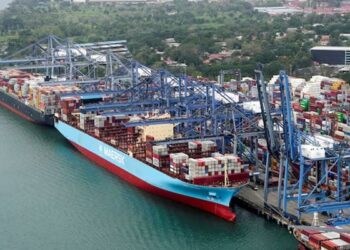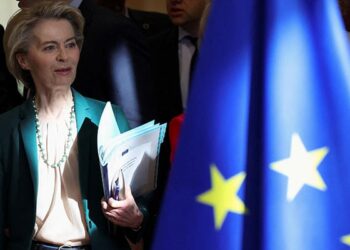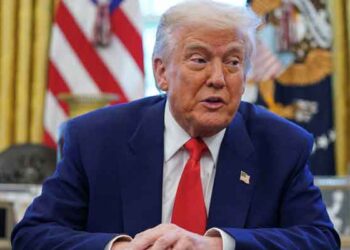On Saturday, Elon Musk expressed his desire for the United States and Europe to come to a consensus about establishing a “zero-tariff” agreement, effectively forming a free-trade zone across the Atlantic.
“My hope is that both Europe and the United States will strive towards a zero-tariff scenario, which would create a viable free-trade zone between Europe and North America,” said Musk, who serves as an advisor to President Donald Trump, while speaking to Italian national leader Deputy Prime Minister Matteo Salvini.
During a press conference on the White House lawn this past Wednesday, Trump announced a starting 10% tariff on nearly all U.S. trade partners set to begin on April 5, followed by additional tariffs starting April 9 for countries enforcing tariff and non-tariff restrictions against American businesses.
The introduction of a 10% tariff on most imported goods, along with increased duties on various nations, from both rivals to allies, has exacerbated a global trade conflict, posing risks of inflation and hindering economic growth.
This extensive tariff measure immediately created waves across international markets and drew backlash from world leaders who are now confronted with the potential cessation of decades of trade liberalization that have shaped the current economic landscape.
Scott Bessent, the U.S. Treasury Secretary, urged other countries against taking retaliatory measures, which could lead to significantly higher consumer prices for everything, from bicycles to wine. “Retaliation will only escalate tensions,” Bessent cautioned during a CNN interview.
Even close U.S. allies aren’t escaping Trump’s criticism, including the European Union, which is facing a 20% tariff, and Japan, hit with a 24% tariff.
According to the head of U.S. research at Fitch Ratings, the effective import tax rate in the U.S. has surged to 22% under Trump’s administration, a substantial increase from just 2.5% in 2024.
“We’ve not seen a rate like this since about 1910,” remarked Olu Sonola. “This is a transformative moment, not just for the U.S. economy but also for global economic conditions. There’s a strong likelihood that numerous countries will face recessions. Many economic forecasts will likely become irrelevant if these tariffs remain in place for an extended period.”
Trump defended the “reciprocal” tariffs, arguing they are necessary responses to prior barriers faced by American goods. He believes these tariffs will support the growth of domestic manufacturing jobs.
“For years, our nation has been exploited, robbed, and undermined by both friends and rivals,” Trump stated.
Experts have warned that these tariffs could decelerate the global economy, increase the chances of a recession, and burden average American families with thousands of dollars in additional costs.
European leaders have reacted with concern, arguing that a trade war would adversely affect consumers and turn out to be unbeneficial for either side.
“We will do everything possible to reach an agreement with the United States, aiming to avoid a trade war that would ultimately weaken the West and aid other global competitors,” stated Italian Prime Minister Giorgia Meloni.






